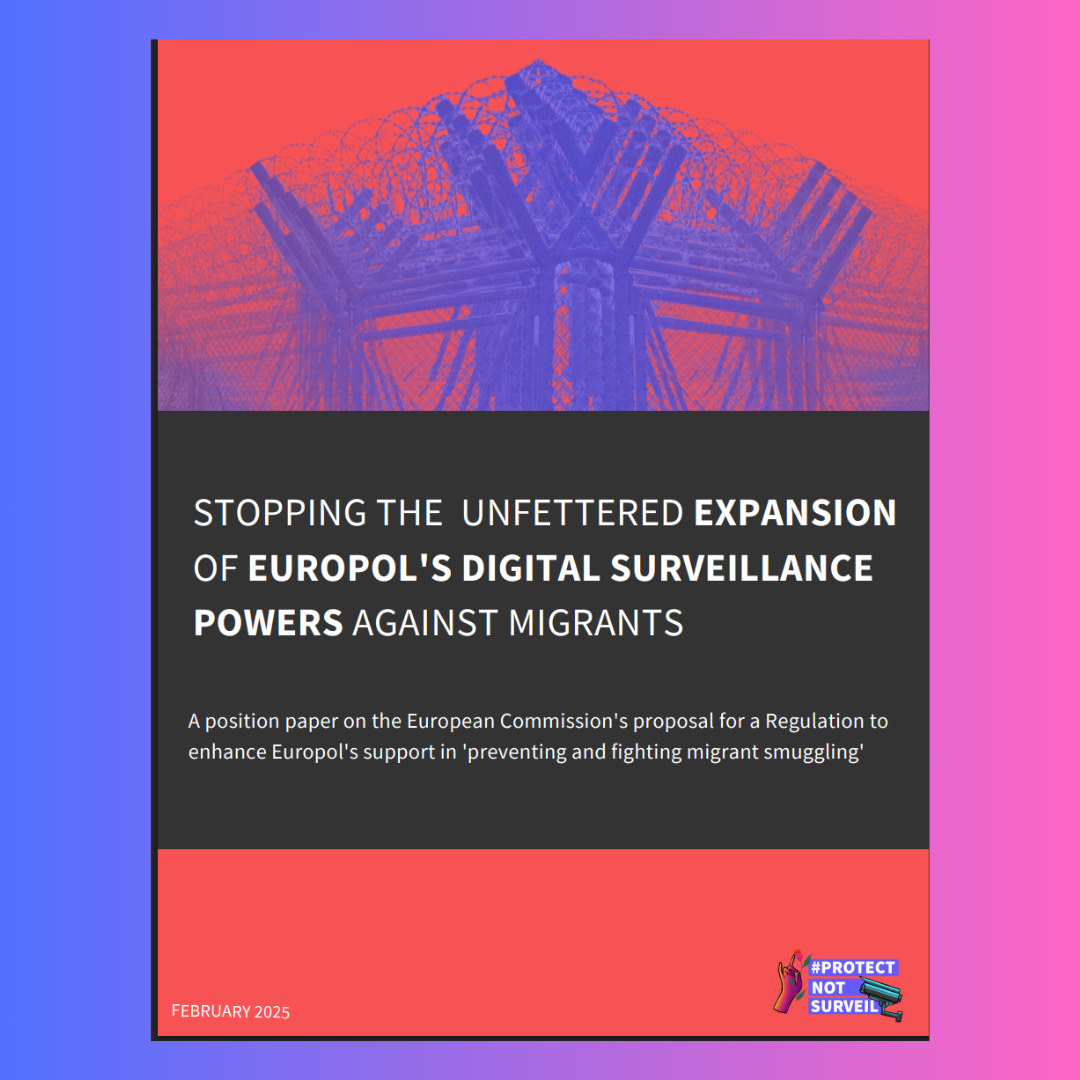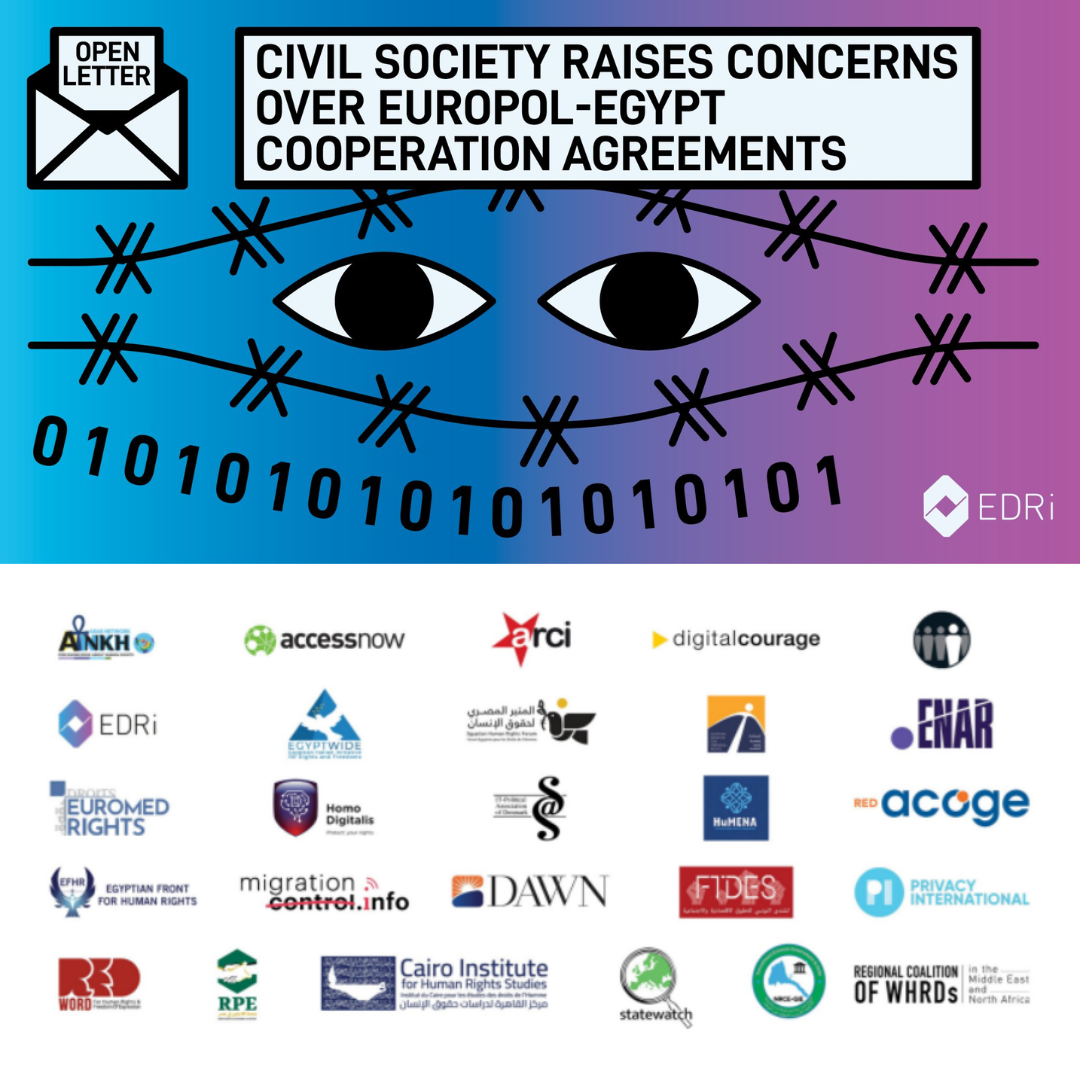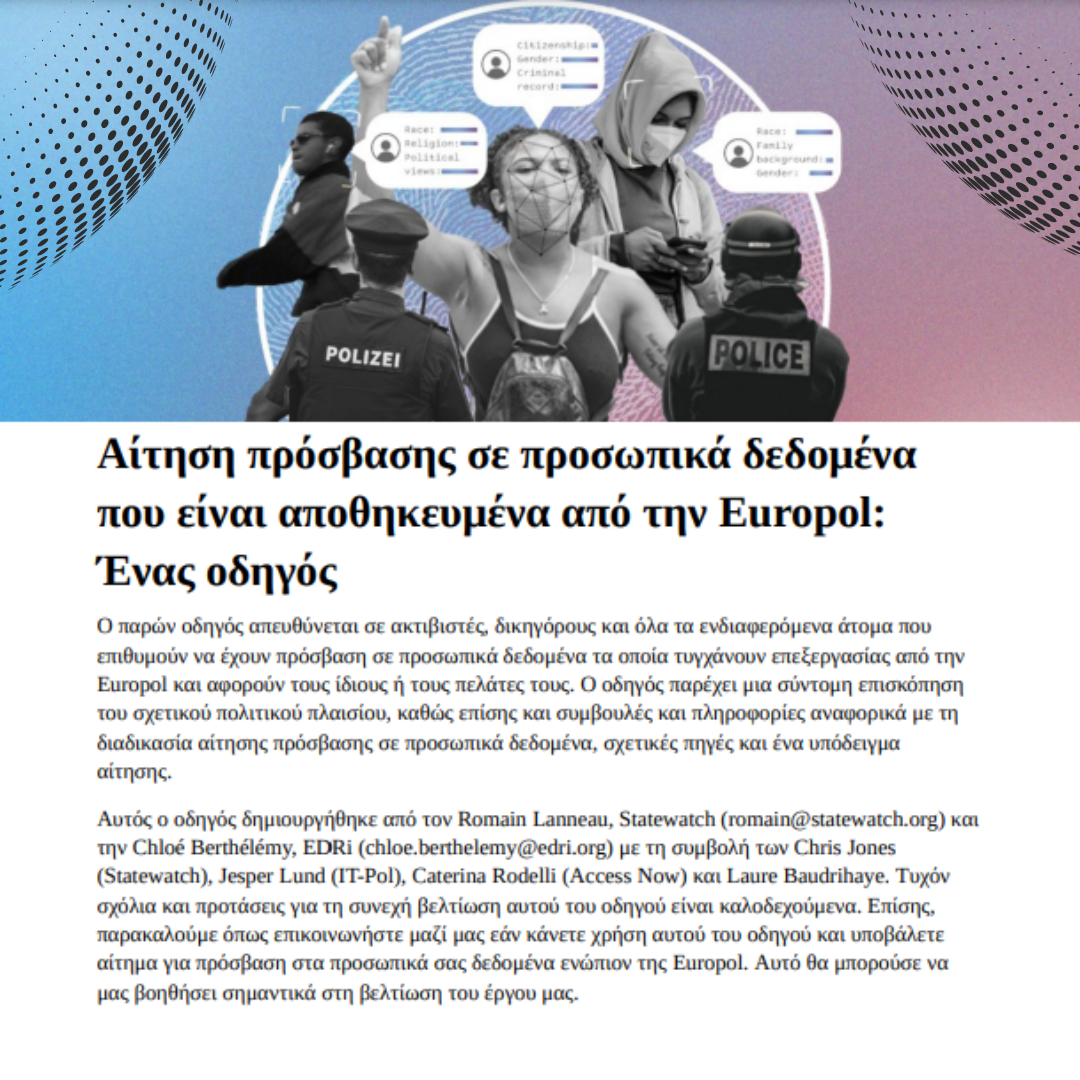The Protect Not Surveil coalition publishes its report on the Europol Regulation
Today, the #ProtectNotSurveil coalition, in which Homo Digitalis serves as a member, launches its report on the Europol Regulation and calls for the full rejection of the European Commission’s proposal.
The Europol Regulation inadvertently supports the business model of smugglers while criminalising migration.
Crucially, the Europol Regulation:
- expands Europol’s surveillance capacity beyond its mandate under the pretext of fighting ‘migrant smuggling’, giving Europol new powers “in relation to all crimes for which it is competent”;
- The EDPS has already raised concerns that the file poses significant risks to the data and privacy rights of migrants, allowing mass data collection and sharing between Member States and EU agencies with known human rights violations (Frontex), as well as third countries without any legal basis for data sharing with the EU;
- The proposal is unsafe and unsubstantiated, presented without a proper impact assessment and based on false claims that smugglers pose the greatest threat to the safety of migrants (UN report);
- Millions in EU public funds will be wasted on Europol’s new activities for a false solution to migration management that simply will not work.
A summary of our position was also published in EUobserver. The full report is available here.
Civil Society Calls on EU to Stop Europol-Egypt Agreement
Civil society is raising the alarm over a proposed agreement between Europol and Egypt. A coalition of 41 organisations and experts, including European Digital Rights (EDRi), has sent an open letter to the European Commission urging it to halt these negotiations.
If signed, the agreement risks legitimising illegal practices by Egyptian police and could pave the way for deeper cooperation with Egyptian authorities, including the harmful sharing of personal data.
This agreement is part of the EU’s broader strategy for police and judicial cooperation, border control, and migration in the Mediterranean region. However, such actions conflict with the EU’s fundamental rights standards. Egypt, which holds an estimated 60,000 political prisoners, has been flagged by the UN for systemic torture and ill-treatment of political opponents and government critics.
We call on the European Commission to:
–Halt the agreement,
–Ensure transparency on human rights and data protection assessments,
–Demand reforms in Egypt to uphold human rights, civil liberties, justice, and democracy.
Read and share the full open letter here.
Requesting access to personal data stored by Europol: a guide
Europol is the European Union’s law enforcement cooperation agency.
Its main task is to receive, exchange and analyse information and data received from the national police authorities of EU Member States, international organisations such as Interpol, third countries and private companies. This is done in order to support national law enforcement authorities “in preventing and combating organised crime, terrorism and other forms of serious crime”.
But Europol’s powers have been steadily increasing over the last decade, which has led to it playing an increasingly important role in police activities and operations. This includes processing data on civilian activities, travel passengers, as well as third country nationals.
This guide is addressed to activists, lawyers and all interested individuals who wish to have access to personal data processed by Europol concerning themselves or their clients. The guide provides a brief overview of the relevant policy framework, as well as advice and information on the procedure for requesting access to personal data, relevant resources and a model application form.
This guide was produced by Romain Lanneau, Statewatch and Chloé Berthélémy, EDRi with contributions from Chris Jones (Statewatch), Jesper Lund (IT-Pol), Caterina Rodelli (Access Now) and Laure Baudrihaye. Translated into Greek by the Homo Digitalis’ team on a pro bono basis.
You can read the guide in other languages here.


